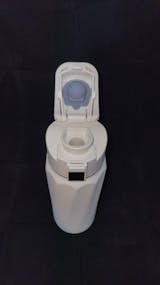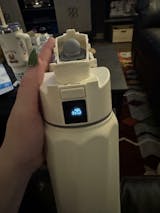
Thirst for Control: Hydrating to Manage Diabetes
Managing diabetes is a daily challenge that requires constant vigilance over diet, physical activity, and medication. However, one often overlooked aspect of diabetes management is hydration. Water, the most essential nutrient, plays a vital role in regulating blood sugar levels and maintaining kidney function, two critical areas for diabetic patients. In this blog, we'll explore how hydration impacts diabetes and offer practical tips on how to stay properly hydrated to prevent dehydration and hyperglycemia.
The importance of hydration in diabetes management

For individuals with diabetes, maintaining balanced blood sugar levels is paramount. Dehydration can disrupt this balance, leading to complications such as hyperglycemia (high blood sugar) and even diabetic ketoacidosis (DKA), a life-threatening condition. When the body is dehydrated, the concentration of glucose in the bloodstream can rise because there’s less water available to dilute it. This makes it more challenging for insulin to do its job, resulting in elevated blood sugar levels.
On the flip side, staying hydrated helps the kidneys flush out excess glucose through urine. This is particularly important for those with diabetes, as their kidneys are often working overtime to manage the body’s glucose levels. Proper hydration ensures that the kidneys function optimally, reducing the risk of kidney damage, which is a common complication of diabetes.
How hydration affects blood sugar levels?
The relationship between hydration and blood sugar levels is bidirectional. Not only does dehydration raise blood sugar levels, but high blood sugar can also cause dehydration. This happens because the body tries to eliminate excess glucose through increased urination, which in turn can lead to significant fluid loss.
When blood sugar levels are high, the kidneys attempt to remove excess glucose from the body by filtering it out into the urine. This process requires water, leading to an increase in urination and, subsequently, dehydration. This cycle can be dangerous if not addressed promptly, as severe dehydration can exacerbate hyperglycemia, creating a vicious cycle that can spiral out of control.
The role of hydration in kidney function

Kidney function is a critical area of concern for people with diabetes. The kidneys are responsible for filtering waste products and excess substances, including glucose, from the blood. Over time, high blood sugar levels can damage the delicate blood vessels in the kidneys, leading to diabetic nephropathy, a serious complication that can result in kidney failure.
Staying hydrated is essential for maintaining healthy kidney function. Adequate water intake helps the kidneys efficiently filter and remove waste, including excess glucose, from the body. This reduces the strain on the kidneys and helps prevent long-term damage. For diabetic patients, particularly those already experiencing kidney complications, proper hydration can make a significant difference in preserving kidney function and overall health.
Practical tips for staying hydrated
Understanding the importance of hydration is one thing, but putting it into practice is another. Here are some practical tips to help you stay properly hydrated and keep your blood sugar levels in check:
- Drink water regularly: Make a habit of drinking water throughout the day, not just when you’re thirsty. Thirst is often a sign that you’re already dehydrated. Aim to drink at least 8 glasses (about 2 liters) of water daily by using your WaterH water bottle, or more if you’re physically active or live in a hot climate.
- Monitor your urine color: A simple way to gauge your hydration status is by checking the color of your urine. Pale yellow urine indicates proper hydration, while darker urine suggests you need to drink more water.
- Limit diuretics: Be mindful of beverages that act as diuretics, such as coffee, tea, and alcohol. While these drinks can be enjoyed in moderation, they can increase urine output and lead to dehydration if not balanced with adequate water intake.
- Set reminders: If you find it challenging to remember to drink water, set reminders on your phone or use a water-tracking app to help you stay on track.
- Incorporate hydrating foods: Foods with high water content, such as cucumbers, lettuce, watermelon, and oranges, can contribute to your daily hydration needs. Including these in your diet can be a tasty way to boost your water intake.
- Adjust for exercise and weather: If you’re exercising or spending time in hot or humid weather, increase your water intake to compensate for the additional fluid loss through sweat.
- Carry a water bottle: Having a smart water bottle with you at all times can make it easier to stay hydrated throughout the day. Choose one that’s easy to carry and convenient to drink from, so you’re more likely to use it.
- Watch for signs of dehydration: Early signs of dehydration include dry mouth, fatigue, dizziness, and headache. If you experience any of these symptoms, drink water immediately and monitor your condition.
Hydration and hyperglycemia prevention
Preventing hyperglycemia is a key goal for anyone managing diabetes, and hydration plays a crucial role in this. By ensuring that your body has enough water, you’re helping to keep your blood sugar levels within a healthy range. In addition to regular water intake, it’s important to monitor your blood sugar levels frequently, especially during periods of illness, stress, or changes in physical activity, as these can all affect hydration and blood sugar balance.
If you notice your blood sugar levels creeping up, increasing your water intake can help your body flush out excess glucose more effectively. However, it’s important to remember that water is not a substitute for diabetes medications or insulin. Always follow your healthcare provider’s recommendations and use water as a complementary tool in your diabetes management plan.
Conclusion
Hydration is a critical but often overlooked aspect of diabetes management. Proper water intake helps regulate blood sugar levels, supports kidney function, and prevents complications such as dehydration and hyperglycemia. By staying mindful of your hydration needs and following the practical tips outlined in this blog, you can take control of your diabetes and improve your overall health and well-being.
Remember, managing diabetes is a multifaceted process, and every small step counts. So, next time you reach for a glass of water, know that you’re not just quenching your thirst—you’re taking an important step toward better diabetes management. Visit WaterH, more hydration tips are waiting for you.

















